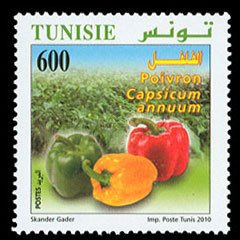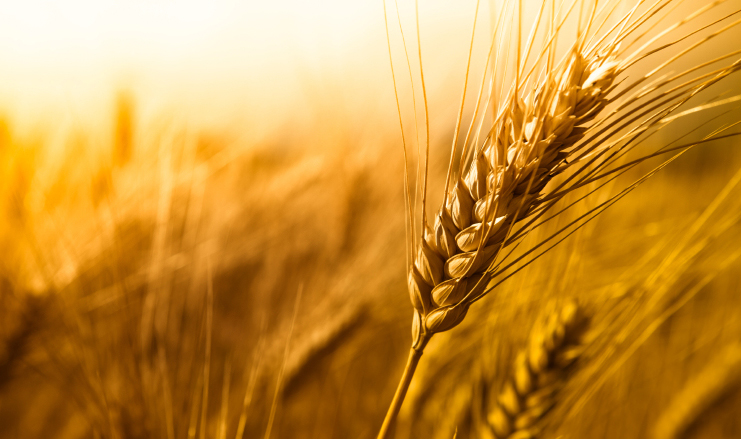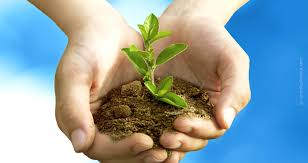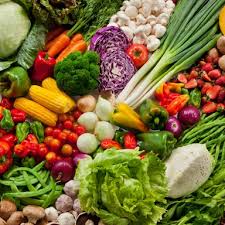Stamp: Peppers (Tunisia 2010)
Peppers (Tunisia 2010)
12 May (Tunisia ) within release Organic Farming in Tunisia goes into circulation Stamp Peppers face value 600 Tunisian milim
| Stamp Peppers in catalogues | |
|---|---|
| Yvert et Tellier: | Yt:TN 1740 |
Stamp is square format.
Also in the issue Organic Farming in Tunisia:
- Stamp - Almonds face value 250;
- Stamp - Grenades face value 250;
- Stamp - Artichokes face value 250;
- Stamp - Dates face value 600;
- Stamp - Peppers face value 600;
- Stamp - Barbary Figs face value 600;
- Stamp - Tomatoes face value 600;
- Stamp - Olive oil face value 600;
- Souvenir Sheet - Organic Farming in Tunisia face value 3750;
|
Data entry completed
83%
|
|
|---|---|
| Stamp Peppers in digits | |
| Country: | Tunisia |
| Date: | 2010-05-12 |
| Print: | Offset and Lithography |
| Size: | 36 x 36 |
| Format: | Stamp |
| Face Value: | 600 Tunisian milim |
| Print run: | 500000 |
Stamp Peppers it reflects the thematic directions:
A crop is a plant that can be grown and harvested extensively for profit or subsistence. In other words, crop is a plant or plant product that is grown for a specific purpose such as food, fibre or fuel.
When plants of the same species are cultivated in rows or other systematic arrangements, it is called crop field or crop cultivation.
Agriculture is the cultivation and breeding of animals, plants and fungi for food, fiber, biofuel, medicinal plants and other products used to sustain and enhance human life.[1] Agriculture was the key development in the rise of sedentary human civilization, whereby farming of domesticated species created food surpluses that nurtured the development of civilization. The study of agriculture is known as agricultural science. The history of agriculture dates back thousands of years, and its development has been driven and defined by greatly different climates, cultures, and technologies. Industrial agriculture based on large-scale monoculture farming has become the dominant agricultural methodology.
Environmental protection is the practice of protecting the natural environment by individuals, groups and governments.Its objectives are to conserve natural resources and the existing natural environment and, where it is possible, to repair damage and reverse trends.
Vegetables are parts of plants that are consumed by humans or other animals as food. The original meaning is still commonly used and is applied to plants collectively to refer to all edible plant matter, including the flowers, fruits, stems, leaves, roots, and seeds. An alternative definition of the term is applied somewhat arbitrarily, often by culinary and cultural tradition. It may exclude foods derived from some plants that are fruits, flowers, nuts, and cereal grains, but include savoury fruits such as tomatoes and courgettes, flowers such as broccoli, and seeds such as pulses.




